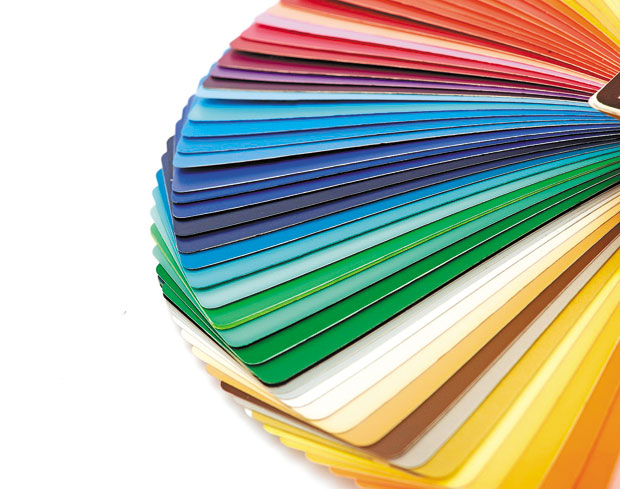Your True Colors
Who would have thought feng shui had anything to do with cars? It sure does, and here’s a guide to what your ride’s hue may say about you
QUESTION OF THE WEEK: Can feng shui be applied to cars? I’m a salesperson and spend a lot of time in my car. I also am looking to purchase a new car. Do you have any advice on what color car would be best?
When it comes to cars, feng shui principles definitely apply, especially in your case, where, as a salesperson, your car is like your second home.
Here are some basic feng shui guidelines to give you maximum energetic support from your car. The first two reminders are conventional, but the third and fourth are somewhat unconventional:
• Wash your car regularly. A dirty car repels positive energy, while a clean car draws positive energy to you.
• Keep your car’s interior free of clutter and rubbish. The negative impact of clutter and rubbish is intensified by the small interior space of a car and can create chaotic and stuck energy. Keeping your interior clean and clear symbolically frees the path to move forward smoothly in your life and career.
• Name your car. Naming your car is a sure way to form a strong connection to it. When you “personify” your car, you naturally take better care of it. Using decals or vanity plates also can foster that personal connection.
• Add something meaningful. Using symbols promotes sensory well-being. The symbol need not be seen and can be anything: a special stone to remind you to take care of your health, a smile-enhancer — like a photo of your pet or child, or a favorite charm. You can place these symbols in your coin holder, glove compartment or anywhere you’d like that doesn’t hinder safe driving.
On choosing car colors
According to color and environmental psychologists, the car color we choose can act as a psychological shortcut that expresses how we want the world to think about us and how others perceive us. Your color preferences likely will change over the course of time; but each car/color change presents a new opportunity to choose what will most accurately reflect who you are at that time. The following is some insight into the meaning of colors, as seen through the lens of feng shui and color psychology.

Black — In feng shui, black represents the element of water and is considered highly protective, also connoting elegance and mystery. According to the Axalta report of 2013, black was the most popular color for luxury vehicles, and color psychology implies that those who drive black cars like to appear sophisticated, private, important, classic and in control.
White — In feng shui, white is a symbol of honesty, purity, perfection, hope, intelligence, expansiveness, openness and cleanliness. Color psychology suggests that by driving a white vehicle, you prefer to present a fresh and modern face to the world.
Silver — In feng shui, silver represents the element of metal — organized, efficient, strong and secure. Color psychology says silver indicates that you are attuned to upscale and innovative things. By choosing a silver car, you may think of yourself as stylish and living in tune with current times.
Red — In feng shui, red represents the fire element, symbolizing passion, power, love, romance, abundance and manifestation. Color psychology suggests that choosing a red car means you like stimulation, excitement, power and expansion. Environmental psychologists say that “go-getter” types like red cars because they project action, confidence and toughness.
Blue — In feng shui, blue represents clarity, inspiration, renewal, wisdom and nobility. Studies in color psychology show that, to most people, blue is calming, healing, soothing and relaxing, and symbolizes dependability, security and trustworthiness. A blue car is considered a happy one for many people, bringing blue skies to the gray roads and projecting a happy energy.
Brown — In feng shui, earth tones, such as brown, tan or beige, relate to the element of earth, represent stability and are grounding, motherly, comforting and supportive. Color psychologists say that brown and other earth tones exude a quiet peace. People who choose earth-colored cars are practical, conservative, like to be depended upon, naturally expressing that in their personalities, and are unlikely to be moved by the latest trends or fashions.
Gold — In feng shui, gold, the color of royalty, is popular because of its association with money and wealth, and expresses the vital energy of the sun, representing the power of light that brings life to all. Color psychology relates gold to yellow and suggests that it represents an expression of joy and a positive attitude. Interestingly, gold is currently not a popular color choice, comprising only 1-2 percent of car sales.
Green — In feng shui, green represents the wood element, bringing the energy of growth, expansion, strength, vitality, flexibility and generosity to your car. The psychological effect of green is similar in that it represents calmness, abundance and nature. If you choose a green car, it can be symbolic of a new beginning.
What does your car color represent to you?
Although feng shui and color psychology present two rationales about the color of your car, the most important thing is what it means to you, and how you feel when you are driving it.
Do you have a question for Alice? If so, send it to alice@yourhappinessu.com. Alice Inoue is the founder and Chief Happiness Officer at Happiness U, a friendly educational establishment located in the Iwilei area. At Happiness U you’ll find inspiring classes geared toward personal growth and helping you live a more meaningful and ease-filled life. www.YourHappinessU.com.